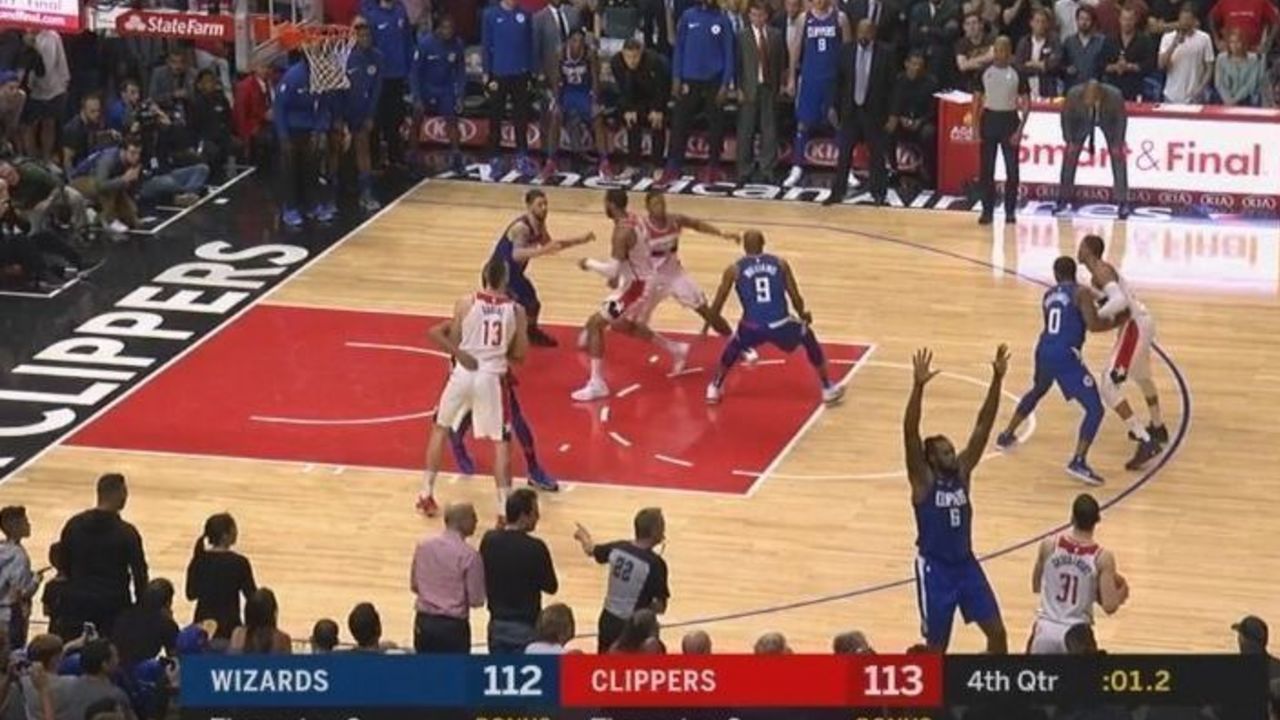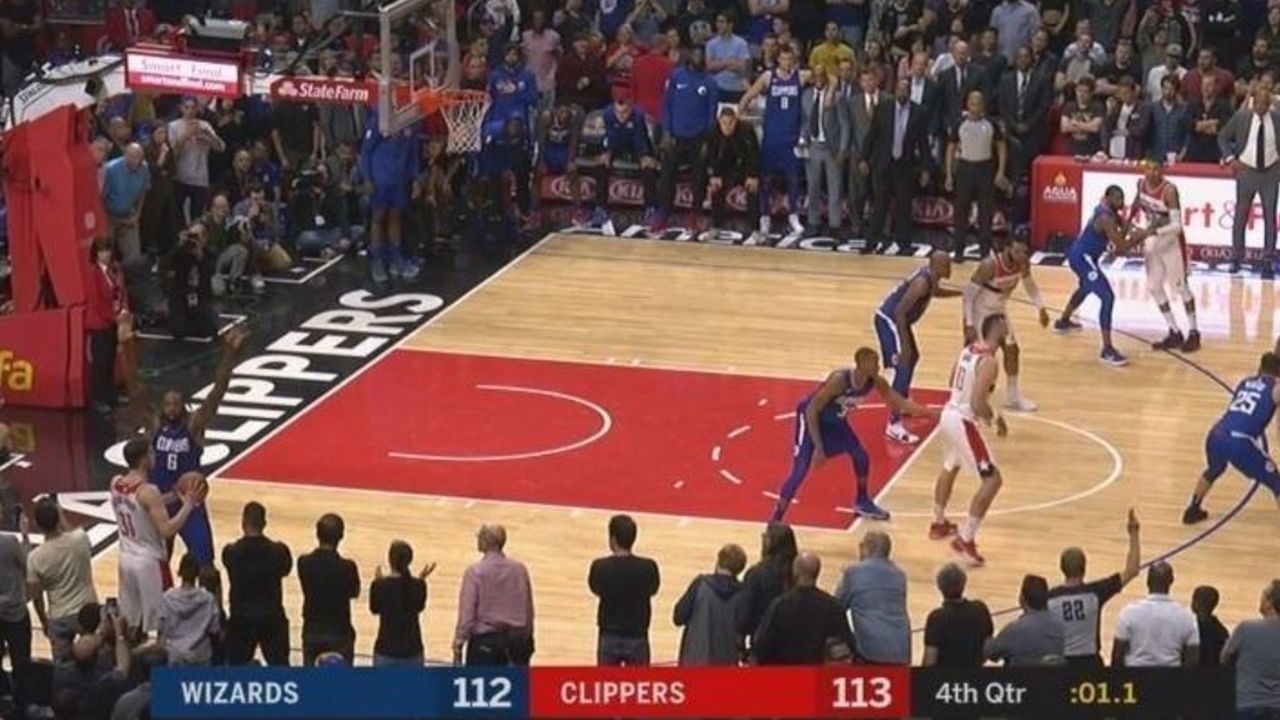Breaking down the bizarre ruling at the end of Wizards-Clippers
If the final 1.2 seconds of Saturday's Washington Wizards-Los Angeles Clippers tilt made your head hurt, you may want to pop a Tylenol before reading the explanation for what went down.
Let's quickly recap the end of the game:
Trailing by a point following a Lou Williams go-ahead 3-ball, the Wizards had possession with 1.2 seconds to play. They advanced the ball with a timeout, and inbounded from the usual sideline spot in the Clippers' end, along the same horizontal plane as the top of the arc.

Bradley Beal received the inbounds pass in the corner, made a move along the baseline, and dropped in a floater that left his hand well after the buzzer. Upon review, however, officials found the clock had started early, with the clock operator mistakenly thinking DeAndre Jordan had tipped the pass.
Beal's shot would've been late regardless, but in an uncharacteristic decision, the officials opted to give the Wizards a do-over. Only, this time, there were 1.1 seconds on the clock, and the Wizards were inbounding from the corner.

That position made it more difficult to spring Beal for the inbounds, and the play resulted in a clanked Marcin Gortat 3-pointer.
Beal told reporters that the explanation he received from officials for the reduced clock and altered inbound spot was "the tough s--- rule."
In speaking to pool reporter Todd Dybas after the game, referee crew chief Bill Spooner offered a slightly different (though hardly more coherent) rationale:
"We had a clock malfunction, early start," Spooner said. "The crew actually reset the shot clock to 1.1, we should have reset it to 0.1. The reason is, on an early start, we timed the possession, the lost time. The only time that was lost was 0.1. So we should have inbounded the ball at the point of interruption, which is what we did, but it should have been at 0.1 instead of 1.1."
In other words, the Wizards weren't supposed to be replaying their final possession. Rather, they were supposed to be getting an additional possession, using the time the premature clock-trigger had cost them. According to Spooner, it only cost the Wizards 0.1 seconds, but they reset the clock to 1.1. And if you go back and watch, you can clearly hear Spooner saying "one point one" after he removes his headset following the review from Seacaucus.
"We actually made the mistake in their (the Wizards') favor if you will, and reset it at 1.1," Spooner said.
As for the inbound spot being moved to the corner, Spooner reiterated: "The ball is inbounded at the point of interruption, right where (Beal) caught the ball."
Although technically the "interruption" occurred when the clock started early, which by definition happened before Beal caught the ball.
Spooner said all this is covered in the NBA rule book, specifically citing Rule 13, section 1A-5.
"By rule, it's a clock malfunction, early start, and we have certain protocol to do on that play," he explained.
As Dybas points out, however, that section of the rule book doesn't specify any of the purported protocols the officiating crew followed after recognizing the clock malfunction.
This is Rule 13, section 1A-5, which is only under “instant replay triggers,” but does not provide an outline for what to do should this occur. pic.twitter.com/a46mIHlLJQ
— Todd Dybas (@Todd_Dybas) December 10, 2017
In short, the end of this game was a tangled web of inscrutable decisions and questionable outcomes. It's hard to keep track of which team was getting screwed, but the simple answer is: both.
HEADLINES
- Raptors' Barnes joins Jokic as only active players with 20-25-10 game
- Atkinson slams Cavs after loss to Rockets: Game 'over in 1st quarter'
- Bulls' White irked by Giannis' 'disrespectful' dunk in final seconds
- Suns' Williams, Pelicans' Alvarado ejected after throwing punches
- Raptors' Barrett returns vs. Warriors after 5-week absence